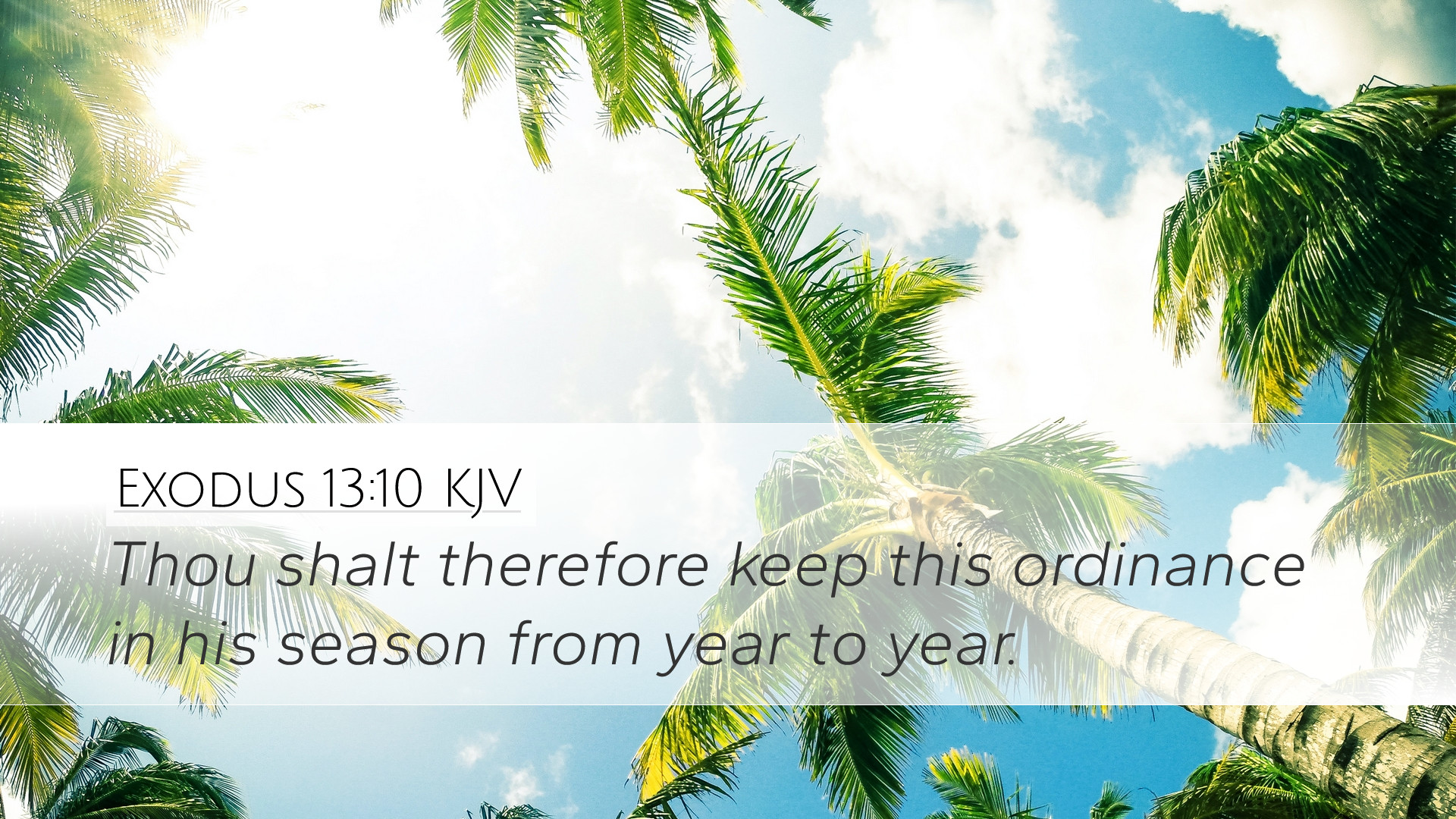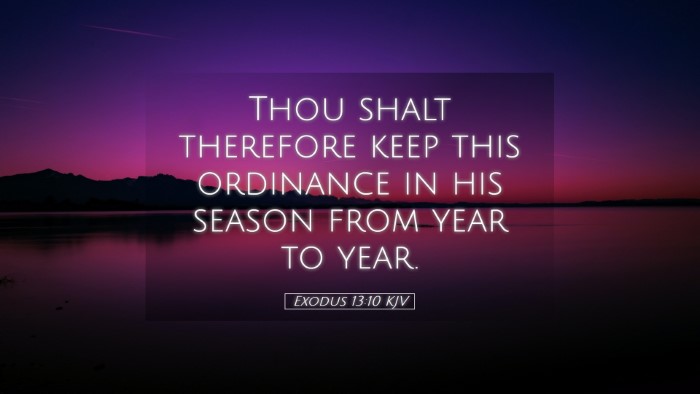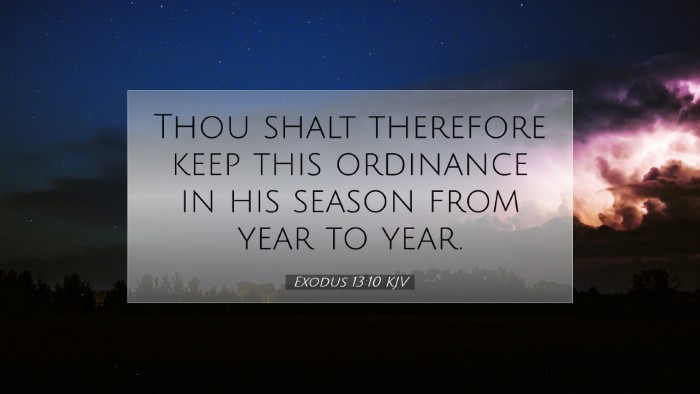Commentary on Exodus 13:10
Exodus 13:10 (KJV): "Thou shalt therefore keep this ordinance in his season from year to year."
Introduction
The verse Exodus 13:10 is a critical component of the broader narrative in the Book of Exodus, marking God's commandment to the Israelites regarding the observance of Passover and the feast of unleavened bread. This directive is steeped in theological significance and serves as a key moment of remembrance and continuity in the covenant relationship between God and His people.
The Importance of Remembrance
According to Matthew Henry, the call to "keep this ordinance" is an explicit instruction from God, illustrating the necessity of remembering His deliverance of Israel from Egypt. This act is not merely ceremonial but carries profound implications for faith and identity. Observance of these practices reinforces the community’s collective memory of their liberation and God’s faithfulness.
- Historical Context: Israel's identity as a people liberated by God is central to their spiritual heritage. Every year, the celebration encapsulates their past experiences and God's faithfulness.
- Theological Significance: The Passover exemplifies God's mercy as He passed over the houses marked with blood, highlighting the theme of redemption that is foundational to Christian theology.
Literal and Spiritual Dimensions
Albert Barnes emphasizes both the literal observance and the spiritual implications of this command. Observance is not merely about the physical actions taken during the feast but also about understanding the underlying truths they signify.
Literal Observance
The keeping of the ordinance reflects a commitment to obey God's laws, which establishes order and community among the Israelites.
- Yearly Rhythm: The phrase “from year to year” underscores the importance of regular, communal worship and remembrance.
- Familial Role: This ordinance is not isolated; it prompts families to engage in discussions about their heritage, instilling a sense of continuity across generations.
Spiritual Observance
The spiritual observance speaks to a deeper understanding of redemption. Adam Clarke notes that it prefigures the ultimate sacrifice of Christ, marking a transition toward understanding the New Covenant.
- Passover and Christ: The ordinance foreshadows the atoning sacrifice of Jesus, who is termed the "Lamb of God," connecting the dots between the old and new covenants.
- Faithful Response: The call to remember and keep the ordinance encourages believers today to reflect on their own deliverance through faith in Christ.
Application for Believers
For pastors, theologians, and students of Scripture, Exodus 13:10 serves as a reminder of the importance of faith traditions. Maintaining the practice of remembrance within worship and community life infuses spiritual practices with historical depth.
- Teaching and Preaching: Pastors are encouraged to weave the narrative of Exodus into sermons, illustrating the continuity of God’s redemptive plan.
- Communal Ties: Churches might consider how communal observances of traditions (e.g., Easter) serve as modern parallels to the ordinance discussed in Exodus.
- Personal Reflection: Believers are called to reflect on their own "exoduses," the moments of deliverance in their lives and maintain these memories through personal practices of faith.
Conclusion
The command to keep the ordinance in Exodus 13:10 encapsulates a rich tapestry of history, faith, and theology which transcends time. It is a profound invitation to remember, reflect, and rejoice in the God who delivers and redeems. As we endeavor to keep these ordinances in our own lives, we are joined in a legacy of faith that binds the past to the present and propels us into a hopeful future.


